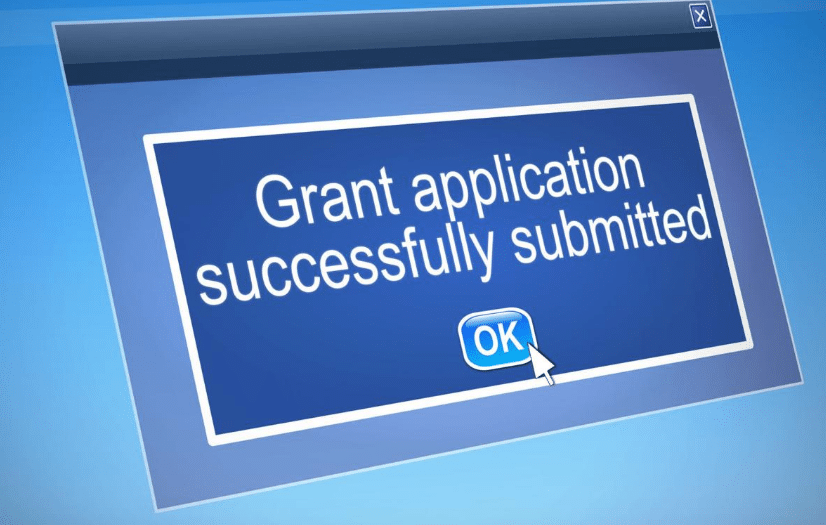If you’re struggling on a low income, there’s a lot more money available to support you than you might imagine. Charities, the government, and even businesses frequently have funding available to assist, especially if you have children. Millions of pounds in grants, loans, and tax credits go unclaimed. This guide walks you through what the grants for low income families that you might be eligible for.
What is a Grant?
A grant is money or a voucher that helps you pay for something. Although it may not cover the entire cost of the item, leaving you to foot the bill, it is usually always free.
Grants are typically given to encourage people to do or buy something they would not ordinarily consider.
Grants for Low-Income Families
#1. The Child Care and Development Program
It’s no secret that raising a child is expensive, and each stage of a child’s development brings with it a new set of requirements.
Fortunately, you can apply for grants from the Child Care and Development Program. This program assists each state in providing money to various low-income families, and each state has its own contact for this program.
While there are several grants available, most of them are aimed at children under the age of 13. If your child is older, you should look into other financial help options.
#2. The HEAP Program
Depending on where you reside, your utility expenses may be fairly expensive throughout the year. This is due to the high cost of heating and cooling your property, particularly during the height of summer or winter.
That is why the government created the Home Energy Assistance Program (HEAP) for low-income families. For this program, various states get funds to disburse as grants through the Department of Health and Human Services.
There are eligibility limitations, like with most grant programs. These criteria will vary by state. To find out the exact eligibility requirements in your state, as well as what grants are available, contact a HEAP representative in your state.
#3. Operation Homefront
Are you currently or have you ever been in the military? In that scenario, you should look into Operation Homefront.
This is a non-profit charitable organization that assists soldiers and veterans who require financial support in addition to their existing benefits. The program also includes wounded soldiers and service personnel’ families.
This organization invites service people, their families, and veterans to apply.
#4. Net Wish
Most low-income families receive a lot of practice stretching their money and budgeting for the month. However, an unexpected medical expense or other bill might drastically disrupt your budget and jeopardize your entire financial status.
That is why the Net Wish organization was founded. This organization can provide grants to low-income families who are suffering an emergency or a crisis.
While anybody can apply, the program’s major focus is on assisting families with children and the elderly. Consider applying today if you satisfy these requirements and are in financial distress.
#5. HealthWell Foundation
Do you rely on prescription medications? If so, you are well aware of how expensive prescriptions can get and how stressful it may be to meet the costs of medications that are critical to your health.
If you find yourself in this scenario, it’s worth looking into the HealthWell Foundation. This organization was created to assist you with a wide range of out-of-pocket medical bills.
These costs could include your prescription medication. They may also contain things like your health insurance premiums. With the support of this foundation, you won’t have to choose between your pocketbook and your health.
#6. Modest Needs
The majority of the charitable organizations on this list are very specialized. Modest Needs is a charity with a broader emphasis than the others.
Low-income families may be eligible for grants to aid with medical bills. There are also grants available for independent living needs and back-to-work funding.
It’s important to investigate what they have to offer and determine what would be a good fit for you and your family.
#7. Free Gas USA Inc.
The expense of gas is maybe the most unseen enemy of your monthly budget. It seemed that gas costs are always rising. Nobody, however, can afford to quit paying for gas because you need it to get to work, the grocery store, and everywhere else.
That is why Free Gas USA Inc. was founded. The purpose of this group is obvious from the name: they exist to provide grants to help you pay for your gasoline, thereby turning it into “free gas.”
These grants may be available to you based on your income. However, elderly and disabled Americans may be eligible for these grants regardless of their financial situation.
Transportation Grants for Low-Income Families
The federal government does not provide transportation grants to low-income families or individuals. Instead, funds are directed to colleges, non-profit organizations, and state agencies in order to create a public good.
However, by employing various tactics, you can obtain financial aid for transportation to medical appointments, work sites, and grocery stores.
For example, you can trace grant money from federal departments to local state, county, or municipal organizations that deliver benefits to specified groups.
Alternatively, you can take advantage of government programs that contain financial aid for transportation costs disguised in the fine print.
Often, you need to know where to look and what questions to ask. Here are some transportation grants for low income families:
Work Commuting Grants
Individuals and low-income families can trace transportation grants to local agencies that provide financial support when commuting to work. The key is knowing where to apply and how to recognize alternate names.
When you broaden your search beyond rides to work, medical appointments, and the grocery store, free government money for bills and personal usage may be more lucrative. When it comes to finding respite from sky-high gas prices, don’t leave any stone untouched!
#1. TANF
Three federal grants are provided to the Temporary Assistance for Needy Families (TANF) program. It provides some support to low-income households to assist them with employment-related transportation costs.
- The Department of Health and Human Services (HHS) manages the TANF block grant program.
- The Department of Labor (DOT) manages the Welfare-to-Work (WtW) competitive grant program.
- Job Access and Reverse Commute Grant Program (Job Access) administered by DOT, Federal Transit Administration
Apply for TANF by contacting the DHS agency in your state. The federal Department of Health and Human Services (DHS) provides grants, but each state decides how to divide the funds.
#2. Section 132
The Internal Revenue Service (IRS) provides a disguised transportation grant known as the Section 132 commuter benefit. Individuals can utilize pre-tax cash to pay for specified expenses through transit and parking accounts.
Pre-tax Commuter Reimbursement Account (CRA) payroll deductions minimize your income liable to three possible taxes: federal income, FICA, and state income, if applicable.
- Transport Account: Use pre-tax cash to pay for mass transport commuting expenses such as subway, train, bus, and vanpools.
- Parking Account: Use pre-tax cash to pay for qualified parking fees near your place of employment or mass transport access points.
You can pay for Lyft rides with your CRA debit card. However, Uber no longer accepts Commuter Benefit Cards as payment.
Apply for this financial aid by choosing to finance a Flexible Spending Account (FSA) or Health Savings Account (HSA) during your annual open enrollment at work.
Transportation to Medical Appointments
The federal and state governments offer two transportation grants with different names. The first provides financial aid to low-income families, while the second assists individuals who earn more.
#1. Medicaid
Medicaid gives transportation grants to low-income families in order for them to access approved healthcare. According to state regulations, financial aid offers trips to doctor’s offices and hospitals as necessary.
For example, Medicaid may pay for taxi, auto, van, subway, or train travels to and from approved medical visits.
After a severe medical crisis, such as a heart attack or a vehicle accident, an air or ground ambulance will transport you to the nearest emergency room.
Non-emergency medical transportation for approved care at a doctor’s office or medical imaging center
#2. Medical Deductions
The IRS provides disguised grants to higher-income persons who require transportation to doctor and dental appointments. Their Topic 502 specifies that travel expenses are tax-deductible medical expenses.
For example, you can deduct the actual fare for a taxi, bus, train, ambulance, or personal auto, as well as tolls and parking, when necessary for critical medical care.
Individuals with higher incomes who pay income taxes have two options for receiving IRS-sponsored financial help. Nonetheless, most people find that using a Flexible Spending Account (FSA) works better than deducting expenses at the end of the year.
Make the deductions using Schedule A, but only after meeting two criteria:
- Itemized deductions surpass the standard deduction.
- Unreimbursed medical expenses exceed 10% of AGI.
An FSA provides first-dollar tax savings (no thresholds) as well as a hidden benefit that is easily ignored.
Shopping Transportation
Many low-income families and individuals can receive financial support with transportation grants to shop for food and other necessities by applying for assistance from local grant recipients.
#1. People with Disabilities
Indirect transportation grants are offered to disabled individuals who are unable to drive a car or use public transportation due to specified disabilities.
#2. ADA
The Americans with Disabilities Act (ADA) requires public transportation operators to provide “complementary paratransit” service to disabled people who are unable to use fixed-route bus or train service.
The supplementary paratransit happens within 34 of a mile of an established bus route or rail station during the same service hours and days for no more than double the standard fixed-route fare.
In other words, the service is not free, but it may be less expensive than taking a taxi or Uber because the government subsidizes mass transport fares.
Find a local provider required to provide this service by searching for “ADA paratransit” plus your state name.
#3. DDD
The Department of Developmental Disabilities (DDD) in your state may be able to help you with transportation costs. Many states spend money to help adults with special needs live independently.
For example, the state of New Jersey pays for Uber and Lyft rides for adults with special needs. They even have a payment option incorporated into the app that connects to a third-party fiscal mediator that manages the transactions.
Apply for this benefit by updating the Individualized Service Plan (ISP) to include transportation services. In New Jersey, you would fill out Section 5 on page 3 of the ISP.
#4. Senior Citizens
The senior center in their town may often help elderly people with many of their transportation needs. Many organizations provide curb-to-curb transportation from clients’ houses to the senior center.
From the senior center, you can take advantage of scheduled busses that travel regular routes to and from popular shopping places such as the local grocery store, pharmacy, or YMCA.
What Is The Most Common Grant?
The most common sort of grant is for program support. Program grants give cash for specific projects or initiatives. Generally, these are restricted grants, which require grantees to spend funds exclusively for the reason specified in the grant submission.
In Conclusion
You are now aware of some of the charity grants for low-income families. However, it is not enough to know. Apply to some of these programs and see what you qualify for. It costs nothing to apply, and you might be shocked at how much financial support you can receive.
One of the greatest methods to acquire grants and other forms of financial aid is to look for local charities and other groups that serve your neighborhood. Don’t forget to look into other beneficial services that may be able to help you minimize your monthly expenditures.
You and your family can attain financial security by decreasing these bills and receiving the grants you deserve.
- Is Moving to Crystal Lake Worth It?
- Cheapest Car Insurance For Low-Income Drivers In 2023
- LOW-INCOME LOANS: Getting Personal Loans With Low Income
- GA INCOME TAX: Definition, Form, Rates, and Brackets






